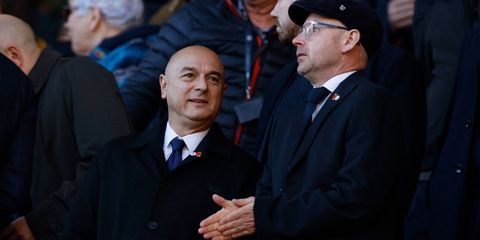Tottenham Hotspur has long been a focal point of interest in the sports business world. When the club announced earlier this year that it was seeking new investment, it was no surprise to those familiar with the rapidly evolving landscape of football finance. The potential injection of funds could significantly impact the club’s future, both on and off the pitch.
In the preamble to Tottenham’s financial report for the 2022-23 season, Chairman Daniel Levy confirmed what many had suspected: Spurs were in talks with potential investors. The club reported a record turnover of £550 million, highlighting its strong financial position. However, Levy’s statement that he had engaged the services of Rothschild, a leading investment bank, to explore investment opportunities, signaled the club’s ambitions to elevate itself to even greater heights.
Levy did not specify whether the discussions would lead to a full or partial takeover, but it has since been reported that the club, under the ENIC Group’s ownership, is valued at approximately £3.75 billion. Sources suggest that the current owners might be open to selling a 10-15 percent stake, a move that could mirror Dynasty Equity’s recent investment in Liverpool. This trend of partial sales to private equity firms is becoming increasingly common in football, especially among U.S.-based investors who view clubs as long-term capital appreciation projects.
Tottenham’s appeal to potential investors is multifaceted. The club boasts one of the fastest-growing brands in the United States and East Asia, regions that are crucial to the global expansion of football. Additionally, Spurs generate an impressive £228 million annually in commercial revenue, thanks in part to their state-of-the-art stadium, which is considered one of the finest in the world.
Given these factors, it’s easy to see why a private investment fund might consider Tottenham a lucrative long-term investment. Several U.S.-based investment groups have been linked with the club in recent years, including MSP Sports Capital, which reportedly conducted due diligence on a potential full takeover of Spurs last year. Liberty Media, the owners of Formula 1, has also been loosely associated with potential investment in the North London club.
Brett Johnson, the co-owner of Ipswich Town and a seasoned private equity investor, recently shared his insights on the future of private equity (PE) in football during an episode of the Business of Sport podcast. His perspective offers valuable context for understanding what Tottenham’s future might look like under private equity co-ownership.
Johnson’s background is rooted in private equity, with a diverse portfolio that includes investments in property, industry, and sport. His experience with Ipswich Town, a club that has enjoyed back-to-back promotions since being acquired by a consortium of American investors in 2021, underscores the potential impact that private equity can have on a football club.
When asked about the ambitions of private equity investors in football, particularly those making minority investments, Johnson emphasized the long-term nature of these commitments. “I suspect a fair number of the documents on these investments show that sports are a long-term hold,” Johnson explained. “While PE is traditionally a five to seven-year investment project, investors should potentially be prepared to wait much longer.”
Johnson also noted that private equity firms are likely advising their investors to view these minority stakes as illiquid assets, meaning there isn’t an immediate market for them to sell. This approach suggests that private equity investors are in it for the long haul, expecting the value of their investments to continue rising steadily over time.
Given Daniel Levy’s apparent reluctance to relinquish control of Tottenham, a minority investment might be the most viable option for the club at this time. Selling a 10-15 percent stake, akin to the investment seen at Liverpool, would allow Spurs to secure additional funds without dramatically altering the club’s operational dynamics.
However, Tottenham remains an attractive target for high-profile investors, including Amanda Staveley, director and co-owner of Newcastle United. Staveley has reportedly raised £500 million through PCP Capital Partners for a new football investment venture. While this amount could secure a minority stake in Spurs, it is unlikely that such investors would be satisfied without some level of influence over the club’s management, which might require Levy to cede more control than he is currently willing to consider.
Tottenham Hotspur’s pursuit of new investment marks a significant moment in the club’s history. With the club’s financial strength, global brand appeal, and world-class facilities, it is no wonder that Spurs have attracted interest from some of the most prominent private equity firms in the world.
As negotiations continue, the key question remains whether Daniel Levy will maintain his grip on the club or if the potential influx of capital will lead to a shift in the power dynamics at Tottenham.
Whatever the outcome, the club’s supporters can rest assured that the ultimate goal is to secure Tottenham’s place among the elite of European football, ensuring that the team remains competitive at the highest level for years to come.
Read Also: In talks with agents: Spurs offered chance to sign the new Eriksen in phenomenal ace – opinion
Read Also: Ledley King explains how Tottenham ace Archie Gray and Lucas Bergvall will succeed at the club

